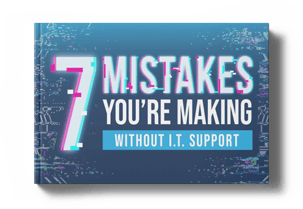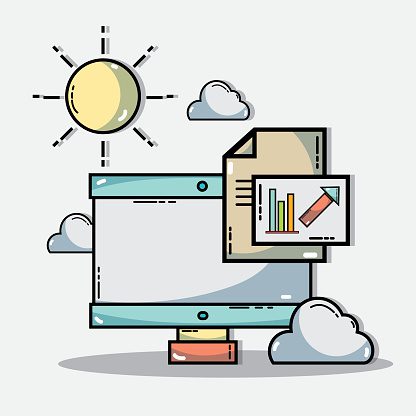Moving Your Accounting Firm to the Cloud?
Accounting firms that move into the cloud become more efficient, more productive, more mobile, and, perhaps more importantly, more profitable. Here...
4 min read
Lance Stone : May 23, 2021 8:00:07 PM
As a small business owner in the Bay Area, you have to navigate challenges that larger operations don't and often with less help and expertise. Unlike autonomous corporations that can rely on allotted budgets and accounting departments, entrepreneurs need to be alert to everything going on with their revenue and expenses. Tracking all of this can prove to be a challenge, but many small business owners understandably want an in-house solution to keep close to their accounting.
Finding a solution to provide a robust small business accounting platform means comparing many complex individual software packages, and can be an overwhelming search. Finding small business accounting software that's right for your needs doesn't always mean the most widely used, or the most expensive. Every small business has unique circumstances and has unique needs for its accounting software. Weighing benefits between different options first means identifying exactly what you're looking for.
Accessibility and ease of use
Accounting software can record, organize, capture, document, and report data, but someone will still have to operate it and do the actual accounting. Accounting software comes in varying levels of complexity, but they all will require operation and input, and someone who at least has some basic knowledge of accounting, as well as the technical expertise to use the software. If this may be a learning experience for someone at your business, think about focusing on finding easier-to-use and well-documented software.
What features do you need?
How do you need accounting help? If basic check writing, balance tracking, and general ledgers are all you need, any accounting software should contain those. If you need more complex functions like job costing, payroll, inventory management, expense reporting, you need to keep a close watch for those features while choosing software.
Also, pay attention to 3rd party compatibility and more advanced features. Don't make assumptions about what features each software package offers, and ensure you're getting the tools you need. If you want your accounting software to interface with point of sale systems, financial institutions, or any other systems you already use, you'll want to ensure that those are supported. Many accounting platforms will offer cloud storage and remote access, while some will be bound to the hardware they're installed on. Before you start looking, know exactly what features are right for your situation.
What's your budget?
The budget is important. You don't beat the competitive edge in the San Francisco area by compromising your own financial guidelines. Some accounting software is priced in subscription-style recurring, regular payments, whereas some are priced in single payments for the full software suite. Though up-front payments can be more attractive initially, read up on what payment includes with each package. Some software with recurring costs, even if high compared to one-time payments, can be beneficial due to continued support and customer service.
Accounting software can range from a hefty investment for a small business all the way down to freeware depending on your budget. Though in many cases more cost means more functionality, that's not always the case. By identifying what's most important to you in your accounting software, you can find something that serves your needs in a budget you can afford.
In addition to weighing features, cost, and ease of use you need to look carefully at the technical specifications of the accounting software. Ensure that your current hardware and OS are compatible with the software packages you are looking at, that way you can plan an upgrade into your budget if needed.
There are a lot of options out there for small business accounting software, and you need to look at multiple options to correctly assess the advantages and disadvantages of each. While this won't be an exhaustive list, we've compiled a few of the most popular ones based on specific priorities.
Budget
Features
Ease-of-use
If after refining your capabilities and needs, you decide that traditional accounting software doesn't quite cover everything you're after, there are other options. Customized solutions can fit specific needs with modern IT tools, and while there are a lot of customized software solutions out there, there are other ways to go for robust accounting solutions.
We conduct business more efficiently and successfully today because of IT solutions that improve our workflow, communication, and organization. As a small business owner, technology is your biggest defense against being outpaced by the big guys. Many options available for small business accounting software give you the same or better of a technological edge than the competition.
Accounting software can help organize and keep your business on pace, but it's far from the only IT solution out there that can make you more efficient and successful in business. If you have any other questions about accounting software or have any way in which On Time Tech services can help serve any other IT needs, don't hesitate to contact us today.


Accounting firms that move into the cloud become more efficient, more productive, more mobile, and, perhaps more importantly, more profitable. Here...

Changes in technology come with a variety of challenges. First, there is the need to change and adapt to the new advancements. There are always...

Accounting, just like every other profession, is affected by our ever-changing world. The increase in technological advances alone can leave your...

On Time Tech is an IT Support and Computer Services company serving California. We provide services to the areas in and around We know businesses like yours need technology support in order to run highly-effective organizations. Leverage pro-growth technology services for your company now.
San Francisco:
182 Howard St.
Suite 108
San Francisco, CA 94105
Los Angeles:
8350 Rex Road
Pico Rivera, CA 90660
Business Hours:
M-F: 8AM-9PM
© 2024 On Time Tech